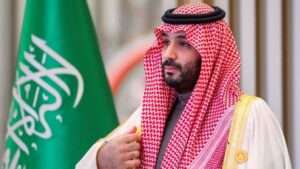Washington DC.
The 27 member states of the European Union on Friday agreed upon an 18th round of sanctions on Russia over its full-scale invasion of Ukraine.
Slovakia had been holding up the decision, citing concerns over its gas imports. But Slovakian Prime Minister Robert Fico relented, saying he had instructed representatives to approve the measures. Fico noted that persisting in opposition would be “counterproductive” for Slovakia’s interests as an EU member.
The new sanctions package targets Moscow’s financial and energy sectors. It follows failed U.S.-led efforts to broker a ceasefire in Ukraine and includes a move to lower the price cap on Russian oil exports to third countries to 15% below market value. The intent is to reduce Russia’s income by banning EU-based shipping and insurance firms from facilitating sales above the cap.
Although the oil price cap was originally a G7 initiative, the U.S. is not a party to the EU’s latest sanctions. EU officials admit that this weakens the overall impact.
Brussels has issued multiple rounds of sanctions since Russian President Vladimir Putin launched the full-scale invasion in February 2022. To date, over 2,400 Russian officials and entities have been hit with asset freezes and travel bans.
Yet, each new package is becoming harder to finalize, as the measures increasingly affect the economies of EU member states. In May, the bloc targeted nearly 200 ships believed to be part of Russia’s so-called shadow fleet used to circumvent sanctions. Friday’s package added another 100 vessels to that list.
The European Union’s 18th sanctions package against Russia marks a continued effort to economically pressure Moscow over its invasion of Ukraine. Despite internal resistance—most notably from Slovakia—the bloc ultimately remained unified, though the growing difficulty of consensus underscores the mounting strain on EU economies. The latest measures, including a stricter oil price cap and expanded targeting of Russia’s shadow tanker fleet, reflect Brussels’ intent to curtail Kremlin revenues. However, the absence of U.S. participation and increasing fatigue among EU members suggest that the effectiveness and sustainability of future sanctions may face significant hurdles.















